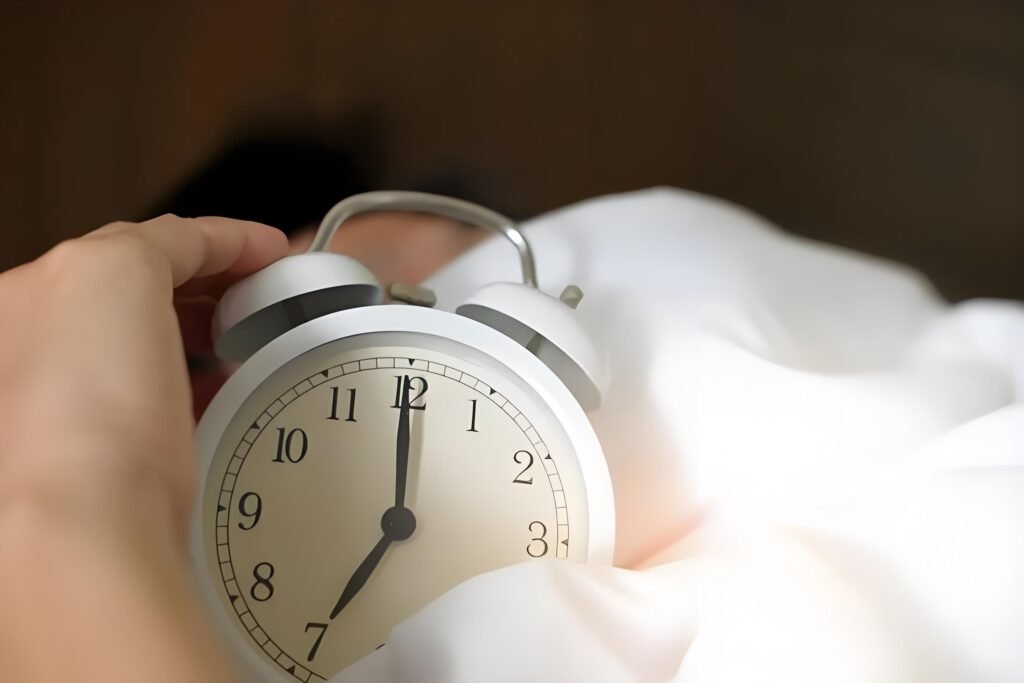In the hustle and bustle of modern life, sleep often takes a backseat. We prioritize work, social commitments, and even leisure activities at the expense of our much-needed rest. However, the importance of a good night’s sleep cannot be overstated. It is during these hours of rest that our bodies repair, rejuvenate, and prepare for the next day’s challenges. Optimizing sleep habits is not just about feeling more rested; it’s about significantly enhancing our overall sleep quality and mental well-being.
The Science Behind Sleep
Sleep is a complex physiological process involving multiple stages, each serving distinct purposes. The two primary types of sleep are Non-Rapid Eye Movement (NREM) sleep and Rapid Eye Movement (REM) sleep. NREM sleep is further divided into three stages: light sleep (N1), deep sleep (N2), and very deep sleep (N3). During NREM sleep, our bodies engage in essential functions such as muscle repair, tissue growth, and energy restoration. REM sleep, on the other hand, is when the brain is most active, involved in processes like memory consolidation and emotional processing.
Insufficient or poor-quality sleep disrupts these critical processes, leading to a cascade of negative effects on both physical and mental health. Chronic sleep deprivation has been linked to increased risk of cardiovascular diseases, weakened immune systems, weight gain, and a heightened likelihood of developing mental health disorders such as anxiety and depression.

Understanding Your Sleep Needs
One of the first steps in optimizing sleep habits is recognizing your individual sleep needs. While the general recommendation is 7-9 hours of sleep per night for adults, this can vary widely among individuals. Some people may function optimally with just 6 hours, while others require closer to 10. Pay attention to how you feel after different amounts of sleep. Are you alert, energetic, and in a good mood? Or do you feel sluggish, irritable, and unable to concentrate?
Creating a Sleep-Conducive Environment
Your bedroom should be a sanctuary dedicated to rest and rejuvenation. Here are some key elements to consider for a sleep-friendly environment:
- Comfortable Mattress and Pillows: Invest in quality bedding that supports your sleeping style. Whether you prefer a firm or soft mattress, ensure it provides the right balance of comfort and support.
- Room Temperature: Keep your bedroom cool. The optimal sleep temperature for most people is between 60-67°F (15.5-19.4°C). Experiment to find what suits you best.
- Darkness: Light affects the production of melatonin, the hormone that regulates sleep-wake cycles. Use blackout curtains or an eye mask to ensure your room is completely dark.
- Sound: Consider using earplugs or a white noise machine to drown out disruptive noises. If you prefer, soothing sounds like ocean waves or rain can also be calming.
- Electronics-Free Zone: The blue light emitted by screens (phones, tablets, computers, TVs) can interfere with melatonin production. Aim to turn off all electronic devices at least an hour before bedtime.
Establishing a Pre-Sleep Routine
Our bodies thrive on routine. A consistent pre-sleep routine signals to your brain that it’s time to wind down and prepare for sleep. Here are some effective practices:
- Wind Down Activities: Engage in calming activities such as reading a book, taking a warm bath, or practicing gentle yoga poses. Avoid stimulating activities like intense workouts or engaging in heated conversations.
- Limit Caffeine and Nicotine: Both caffeine and nicotine are stimulants that can disrupt sleep patterns. Try to avoid them, especially in the late afternoon and evening.
- Mindful Meditation: Practices like deep breathing, progressive muscle relaxation, or guided imagery can help reduce stress and promote relaxation.
- Limit Heavy Meals and Alcohol: Eating large meals or consuming alcohol close to bedtime can cause discomfort and disrupt sleep. Aim to finish eating dinner 2-3 hours before sleep and limit alcohol intake.
The Importance of Regular Sleep Schedules
Our bodies have an internal clock, known as the circadian rhythm, that regulates our sleep-wake cycles. Going to bed and waking up at consistent times every day, even on weekends, helps train your internal clock to fall asleep and wake up more easily. Shift work, irregular sleep schedules, and jet lag can disrupt this rhythm, leading to poor sleep quality and increased fatigue.
Addressing Sleep Disorders
If despite your best efforts, you continue to struggle with sleep, it may be indicative of an underlying sleep disorder. Common sleep disorders include insomnia, sleep apnea, restless leg syndrome, and narcolepsy. These conditions can significantly impact your quality of life and require professional diagnosis and treatment.
- Insomnia: Characterized by difficulty falling or staying asleep, insomnia can be caused by stress, anxiety, depression, or medical conditions. Cognitive-behavioral therapy for insomnia (CBT-I) is often an effective treatment.
- Sleep Apnea: A serious sleep disorder where breathing repeatedly stops and starts during sleep. Treatment options include lifestyle changes, oral appliances, and in severe cases, Continuous Positive Airway Pressure (CPAP) machines.
- Restless Leg Syndrome (RLS): A neurological disorder characterized by an urgent need to move the legs, often accompanied by uncomfortable sensations. Treatment may include medications, lifestyle changes, and iron supplements if deficiency is present.
- Narcolepsy: A chronic sleep disorder causing excessive daytime sleepiness and sudden, uncontrollable sleep attacks. Treatments include medications to manage symptoms and lifestyle adjustments.
The Link Between Sleep and Mental Health
The relationship between sleep and mental health is bidirectional. Poor sleep can exacerbate mental health issues, and mental health disorders can disrupt sleep. Anxiety and depression, in particular, have a strong correlation with sleep disturbances.
- Anxiety: Worries and anxious thoughts can keep you awake at night, leading to insomnia. Conversely, lack of sleep can worsen anxiety symptoms, creating a vicious cycle.
- Depression: Depressed individuals often experience insomnia, early awakening, or non-restorative sleep. Poor sleep can intensify feelings of hopelessness and sadness, making depression more severe.
Addressing sleep issues can be a crucial part of treating mental health disorders. Improved sleep quality can enhance the effectiveness of therapeutic interventions and contribute to overall well-being.
Seeking Professional Help
If you suspect you have a sleep disorder or are struggling with persistent sleep issues, it’s important to seek professional help. Sleep specialists, such as sleep medicine physicians or sleep psychologists, can provide personalized assessments and recommend appropriate treatments. They may recommend sleep studies (polysomnography) to evaluate your sleep patterns and identify any underlying issues.
Building a Healthy Sleep Mindset
Finally, cultivating a healthy mindset around sleep is crucial. Many of us have developed unhealthy attitudes towards sleep, seeing it as a luxury or something we can sacrifice for other priorities. Shifting this mindset to view sleep as a necessity for optimal health and well-being can motivate us to make the necessary changes.
Practice self-compassion and patience. Improving sleep habits is a gradual process, and it’s okay to have off nights. Focus on the progress you’ve made, not just the occasional setback.










































